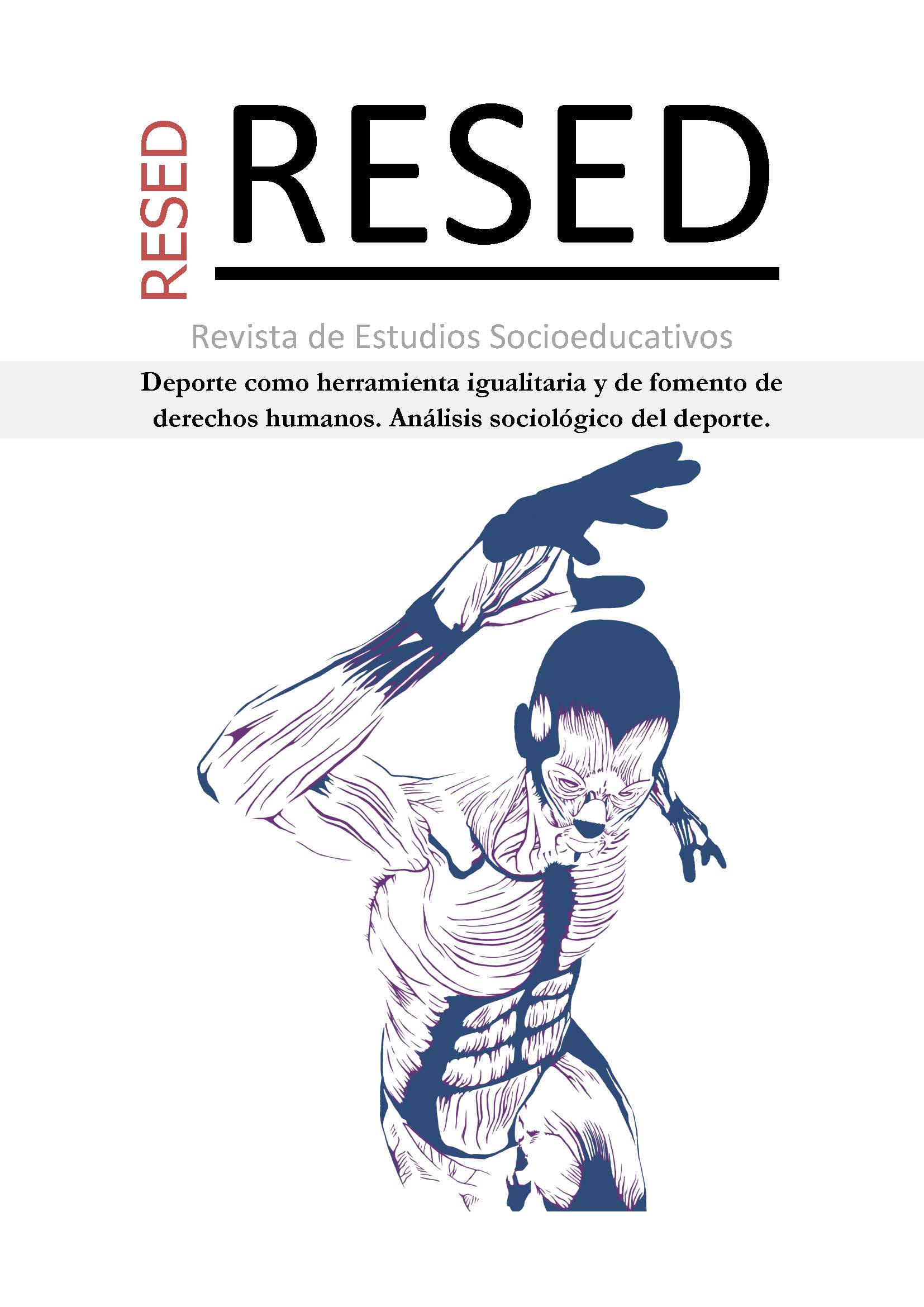Inteligencias múltiples y especialización
Un retorno a Gardner y la necesidad de repensar la psicología en una transparencia hillmaniana

Información
Resumen
En 1983, hace 40 años, Howard Gardner publicó "Farmae Mentis", un ensayo que estaba destinado a revolucionar el enfoque psicológico de la inteligencia y, a partir de ahí, a influir enormemente en el mundo de la investigación (y la práctica) educativa en todo el mundo. Unos veinte años después de su publicación, algunas investigaciones han puesto de manifiesto ciertas carencias del marco teórico de Gardner, sobre todo a partir de los resultados a posteriori de aquella psicología que se basaba -a menudo de forma excesiva y acrítica- en esos supuestos, o peor aún, que sólo pretendía basarse en esas tesis. Cuarenta años después de aquella investigación y unos veinte años después de las críticas dirigidas a Gardner, es posible volver a la teoría de las inteligencias múltiples sobre todo aceptando la crítica de Hillman de que "la psicología ha quedado tan atrapada en la letra de la sutileza que ahora busca una salida en la estupidez. Porque hasta ahora había mezclado precisión con medición, discernimiento con segmentación, refinamiento con tecnología y diferenciación con compartimentación". Lo que surge -como necesidad de nuestro tiempo- es un mundo "más colorido", y entre esos matices (las inteligencias descritas por Gardner, por ejemplo) una infinidad de mezclas y matices: es el mundo de las inteligencias múltiples, que por su propia naturaleza no puede tener un locus funcional, no puede tener etiquetas unívocas ni medirse para todos con el mismo rasero, pues cada una tiene su caleidoscopio individual.
Palabras clave
Descargas
Cómo citar
Licencia

Esta obra está bajo una licencia internacional Creative Commons Atribución-NoComercial 4.0.
Citas
Gardner, H. (1983). Formae mentis. Saggio sulla pluralità dell'intelligenza (Frames of Mind: The Theory of Multiple Intelligences, 1983). Milano: Feltrinelli.
Gardner, H. (2005). Educazione e sviluppo della mente. Intelligenze multiple e apprendimento. Trento: Erickson.
Gardner, H. (2006). Riscoperta del pensiero. Piaget e Lévi-Strauss. Roma: Armando Editore.
Gould, S. J. (1977). Ontogeny and Phylogeny. Cambridge MA: Belknap Press of Harvard University Press.
Gould, S. J. (1977). Ever Since Darwin. New York: W. W. Norton.
Gould, S. J. (1996). The Mismeasure of Man. New York: W. W. Norton.
Gould, S. J. (1999). Questioning the Millennium: A Rationalist's Guide to a Precisely Arbitrary Countdown. New York: Harmony Books.
González Fernández, S., Zayas, A. & Guil, R. (2021). Relaciones personales en la sociedad de las redes sociales virtuales. Revista De Estudios Socioeducativos. ReSed, 1(3). https://revistas.uca.es/index.php/ReSed/article/view/7955
Hillman, J. (1983). Re-visione della psicologia (Re-visioning Psychology, 1975). Milano: Adelphi.
Hillman, J. (1984). Le storie che curano: Freud, Jung, Adler. Milano: Raffaello Cortina.
Hillman, J. (2005). Il linguaggio della vita. Milano: Rizzoli.
Humphrey, N. K. (1983). Consciousness Regained: Chapters in the Development of Mind. Cambridge MA: Oxford University Press.
Humphrey, N. K. (2002). The Inner Eye: Social Intelligence in Evolution. Cambridge MA: Oxford University Press.
Humphrey, N. K. (2000). How to Solve the Mind-Body Problem. Exeter: Imprint Academic.
Jerison H. J. (1985). Animal intelligence as encephalization. Philos Trans R Soc Lond B Biol Sci, 308 (1135), 21-35.
Kandel, E. (1994). Principi di Neuroscienze. Milano: Ambrosiana.
Kandel, E. (2007). Psichiatria, Psicoanalisi e nuova biologia della mente. Milano: Raffaello Cortina.
Kandel, E. (2007). Alla ricerca della memoria. La storia di una nuova scienza della mente. Torino: Codice edizioni.
Kandel, E. (2018). La mente alterata. Cosa dicono di noi le anomalie del cervello. Milano: Raffaello Cortina.
Piaget, J. (1952). Psicologia dell'intelligenza. Firenze: Editrice Universitaria.
Piaget, J. (1955). Il linguaggio e il pensiero del fanciullo. Firenze: Editrice Universitaria.
Piaget, J. (1958). Giudizio e ragionamento nel bambino. Firenze: La Nuova Italia.
Piaget, J. (1966). La rappresentazione del mondo nel fanciullo. Torino: Boringhieri.
Piaget, J. (1967). Lo sviluppo mentale del bambino. Torino: Einaudi.
Piaget, J. (1968). La nascita dell'intelligenza nel fanciullo. Firenze: Giunti-Barbera universitaria.
Piaget, J. (1972). Il giudizio morale nel fanciullo. Firenze: Giunti-Barbera universitaria.
Piaget, J. (1977). Adattamento vitale e psicologia dell'intelligenza. Selezione organica e fenocopia. Firenze: OS Giunti.
Poincaré, H. (1989). La Scienza e l'Ipotesi (1st 1902). Roma: Dedalo.
Poincaré, H. (1994). Il valore della scienza (1st 1905). Firenze: La Nuova Italia.
Poincaré, H. (1997). Scienza e metodo (1st 1908). Torino: Einaudi.
Scheffler, I. (1985). Of Human Potential: An Essay in the Philosophy of Education. Boston: Routledge & Kegan Paul.
Scheffler, I. (1991). In Praise of the Cognitive Emotions and Other Essays in the Philosophy of Education. New York: Routledge.
Scheffler, I. (1993). Writings of Israel Scheffler. Synthese, 94(1), 139-144. http://www.jstor.org/stable/20117737
Spearman, C. (1904). 'General intelligence,' objectively determined and measured. The American Journal of Psychology, 15(2), 201-293. https://doi.org/10.2307/1412107
Spearman, C. (1904). The proof and measurement of association between two things. The American Journal of Psychology, 15(1), 72-101. https://doi.org/10.2307/1412159
Spearman, C. (1928). The abilities of man, their nature and measurement. The Journal of Philosophy, 25(1), 20-25. https://doi.org/10.2307/2015168
Thurnstone, L. L. (1924). The Nature of Intelligence. New York: Routledge.
Thurnstone, L. L. (1935). The Vectors of Mind. Chicago: University of Chicago Press.
Thurnstone, L. L. (1938). Primary mental abilities. Chicago: University of Chicago Press.
Thurnstone, L. L. (1947). Multiple-Factor Analysis. Chicago: University of Chicago Press.
Vygotskij, L. (1966). Pensiero e linguaggio. Firenze: Giunti-Barbera.
Vygotskij, L. (1972). Immaginazione e creatività nell'età infantile. Roma: Editori Riuniti.
Vygotskij, L. (1973). Lo sviluppo psichico del bambino. Roma: Editori Riuniti.
Vygotskij, L. (1980). Il processo cognitivo. Torino: Boringhieri.
Vygotskij, L. (1990). Pensiero e linguaggio. Ricerche psicologiche. Bari: Laterza.
Vygotskij, L. (2015). La Teoria delle emozioni. Roma: L'Albatros.
Vygotskij, L. (con A.R. Lurija) (1987). La scimmia, l'uomo primitivo, il bambino. Studi sulla storia del comportamento. Firenze: Giunti.
White, J. (2006). Intelligence, Destiny and Education: The Ideological Roots of Intelligence Testing (1st ed.). London: Routledge. https://doi.org/10.4324/9780203029190
White, J. (2005). Howard Gardner: the myth of Multiple Intelligences Viewpoint, 16. London: Institute of Education. https://discovery.ucl.ac.uk/id/eprint/10001263/


